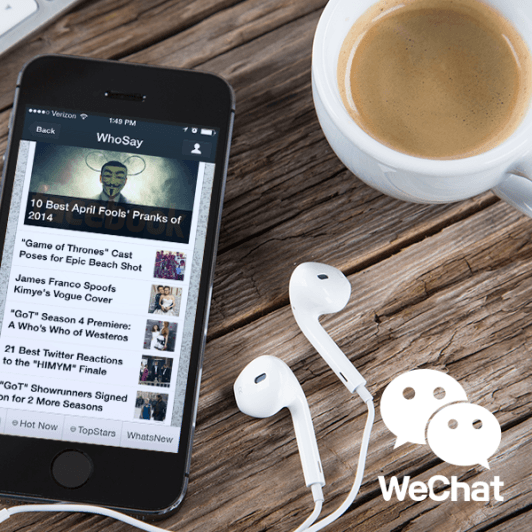From Microsoft Windows as a platform for independent software vendors to Facebook Canvas for games to Google’s Android/Apple’s iOS for mobile apps, the definition of 'platform' has come a long way.
As a building block for both success and failure, the topic of platform is becoming an increasingly important factor for startups to deeply consider.
So what are some key things a platform should provide?
- A standardized and stable development environment allowing developers to trust that their efforts won't be crushed at the whim of a policy or technical change
- Broad adoption: platforms provide developers with a more extensive reach than they would otherwise gain trying to acquire customers directly – through paid or organic channels
- A quid pro quo on monetization where the platform reduces friction for user acquisition and monetization (sometimes it comes at a cost to the developer via a revenue-share arrangement – which is the case with iOS, Android and Facebook games)
The challenge for startups
For entrepreneurs, betting on platforms can be difficult, mostly because even though the three tenets above should hold, often times, they have little or no influence on the terms.
Policies can change, usually in favour of the platform, adoption might be usurped by a new platform, and monetization could eventually be taxed at higher levels by the platform owner.
King’s recent IPO is not only an important milestone for the team after a ten-year journey, but it is also testament to the importance of being conscious of the ever-changing platform environment and pivoting when necessary.

Throughout its journey, King has demonstrated flexibility with platform adoption. The company has navigated web portals (such as Yahoo and ProSieben in its early days), social networks (when Facebook Canvas games launched in 2007 ) and iOS (with its launch of Candy Crush in autumn 2012).
Today, 93 million users play Candy Crush every day with 78% of the King’s total revenue coming from the game alone. The company generated $1.88 billion in revenue last year, which is more than an eleven-fold increase on its $164 million revenue generated in 2012 before the pivot to social and mobile.
Other platform stories to consider
Compare King’s story with Zynga, the iconic social gaming company, which bet deeply (and solely) on Facebook as the platform.
Soon after Zynga went public in 2011, it tried to unwind its dependency on Facebook by launching its own web-based platform the following year. What Zynga missed until this month was the massive evolution of social gaming from the web (and Facebook) to the web and mobile with Facebook.
This was the gap that King leveraged by seeing Facebook not as a platform, but as “social glue”. Through this, the company acquired users across the web and mobile, seamlessly moving them across platforms based on their Facebook-derived identity.
Today, King, a European startup nonetheless, reigns supreme across mobile games, while Zynga’s valuation is slowly recovering from a precipitous drop since its IPO.
Twitter serves as another lesson to entrepreneurs on platform dependency. In 2008, the Twitter 'pipe' was the hot game in town – Tweetdeck, Tweetie and Seesmic all built apps on top of the 'platform'.
But as Twitter scaled and grew, its platform strategy clarified and it became kingmaker – acquiring Tweetie and Tweetdeck – and effectively changing the rules of its own ecosystem.
On the topic, Seesmic founder Loic Le Meur said:
Here are my two cents for entrepreneurs betting on someone else's success: be careful that everything can change from one day to another and all the rules will change. I will never be that dependent on anyone anymore.
There are countless other stories of startups betting too deeply on a single platform without understanding the power the platform holds unilaterally. For example, Apple kicking AppGratis out of the App Store just after it raised $13.5 million or WordPerfect betting too heavily on DOS as it saw Microsof Word surpass it.
If Facebook, iOS and Android are the platforms of today, what will be the platforms of tomorrow?
In the West, we are beginning to see that messaging apps have been a massive revenue-generating platform in the East for the last decade.

Developed by Tencent in China, WeChat is set to generate over $1 billion this year and about 40% more in 2015 as a message-centric dating, gaming and e-commerce platform. This doesn’t even take into account Tencent’s 800 million users on QQ Instant Messenger and more than 200 million users on mobile messaging product Weixin.
Additionally, Japanese messaging service Line, which boasts 400 million users, has created an open marketplace for stickers designers as well as having a gaming platform.
Visual e-commerce is also thriving on different platforms such as Polyvore (the unsung hero of fashion e-commerce), Houzz with its 16 million monthly users as well as the potential of Pinterest given its scale.
In the world of video and music, there's YouTube evolving into a platform that brings a global audience to home-grown talent through the likes of Maker Studios (sold to Disney for up to $800 million). At the same time, it's providing an environment for startups like ipsy to leverage video as an e-commerce driver.
And based on Mark Zuckerberg’s post on Facebook’s massive $2 billion acquisition of Oculus, he evidently sees virtual reality as a potential future platform for gaming and shared virtual experiences.
So, my simple advice to entrepreneurs is this: live by the platform, but also be aware that you can die by the platform.
Bet strategically and, as King was able to do, be willing to pivot and hedge if necessary.
Featured image credit: Kentoh / Shutterstock Candy Crush image credit: Dolphfyn / Shutterstock WeChat image credit: via WeChat's Facebook



Would you like to write the first comment?
Login to post comments